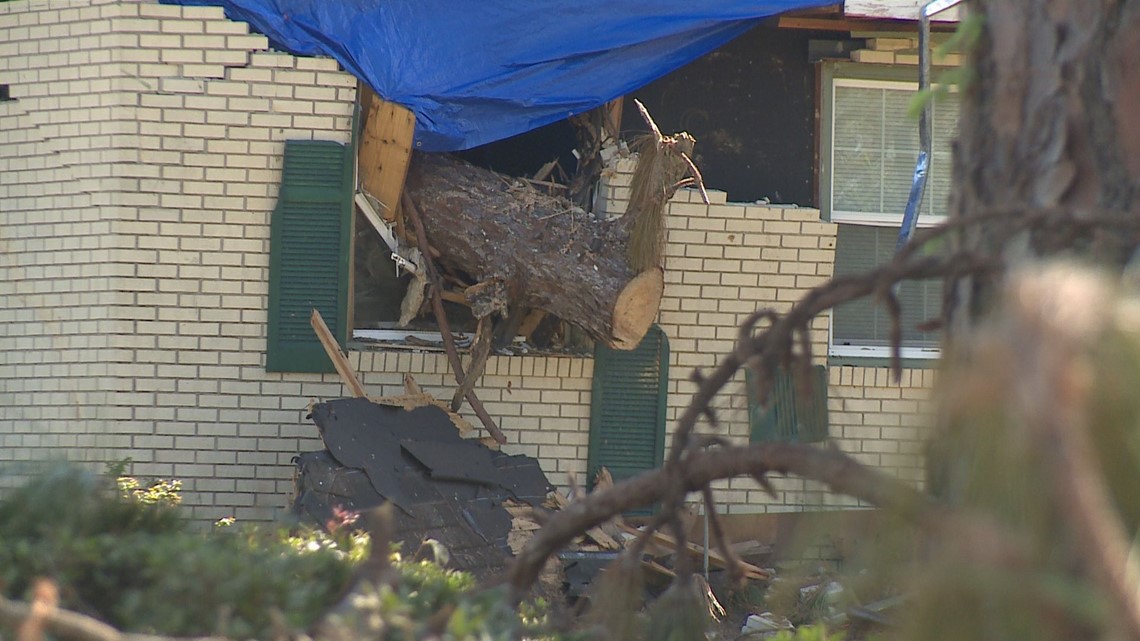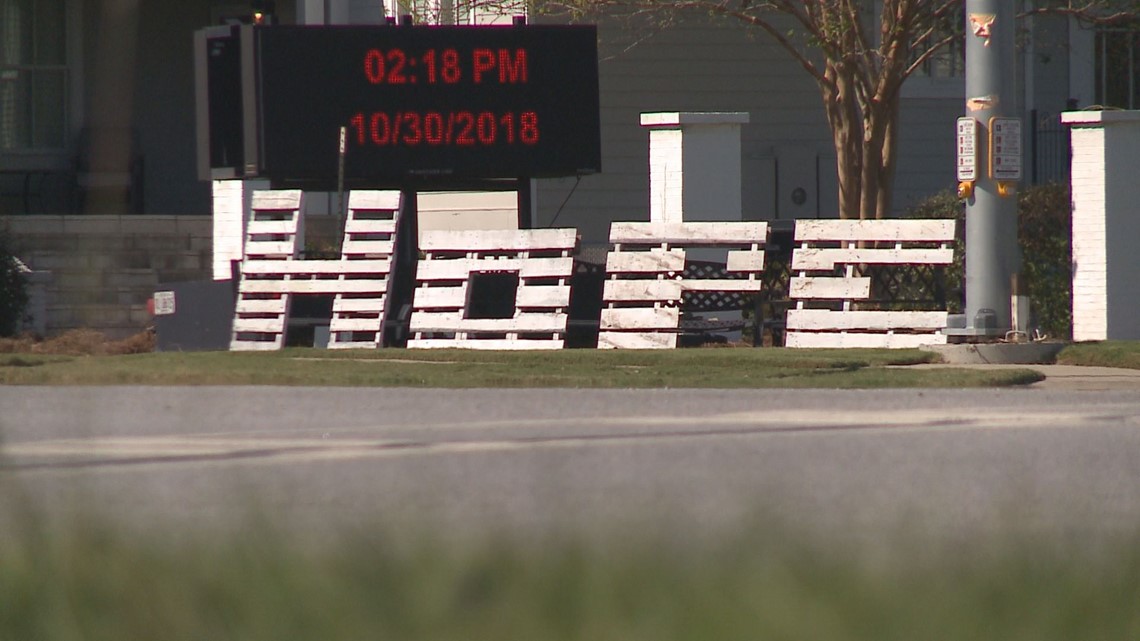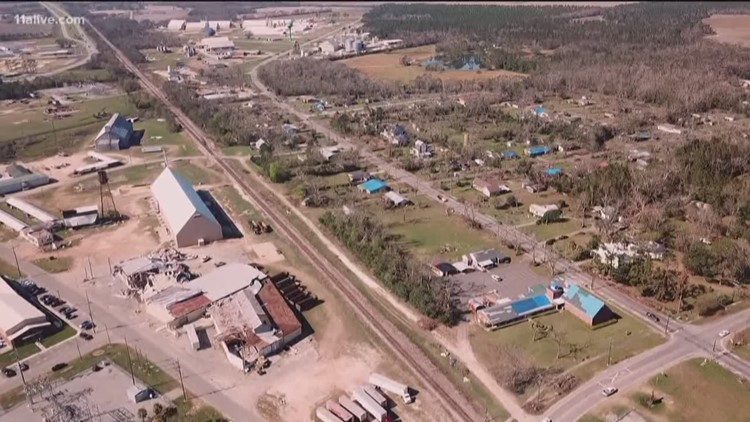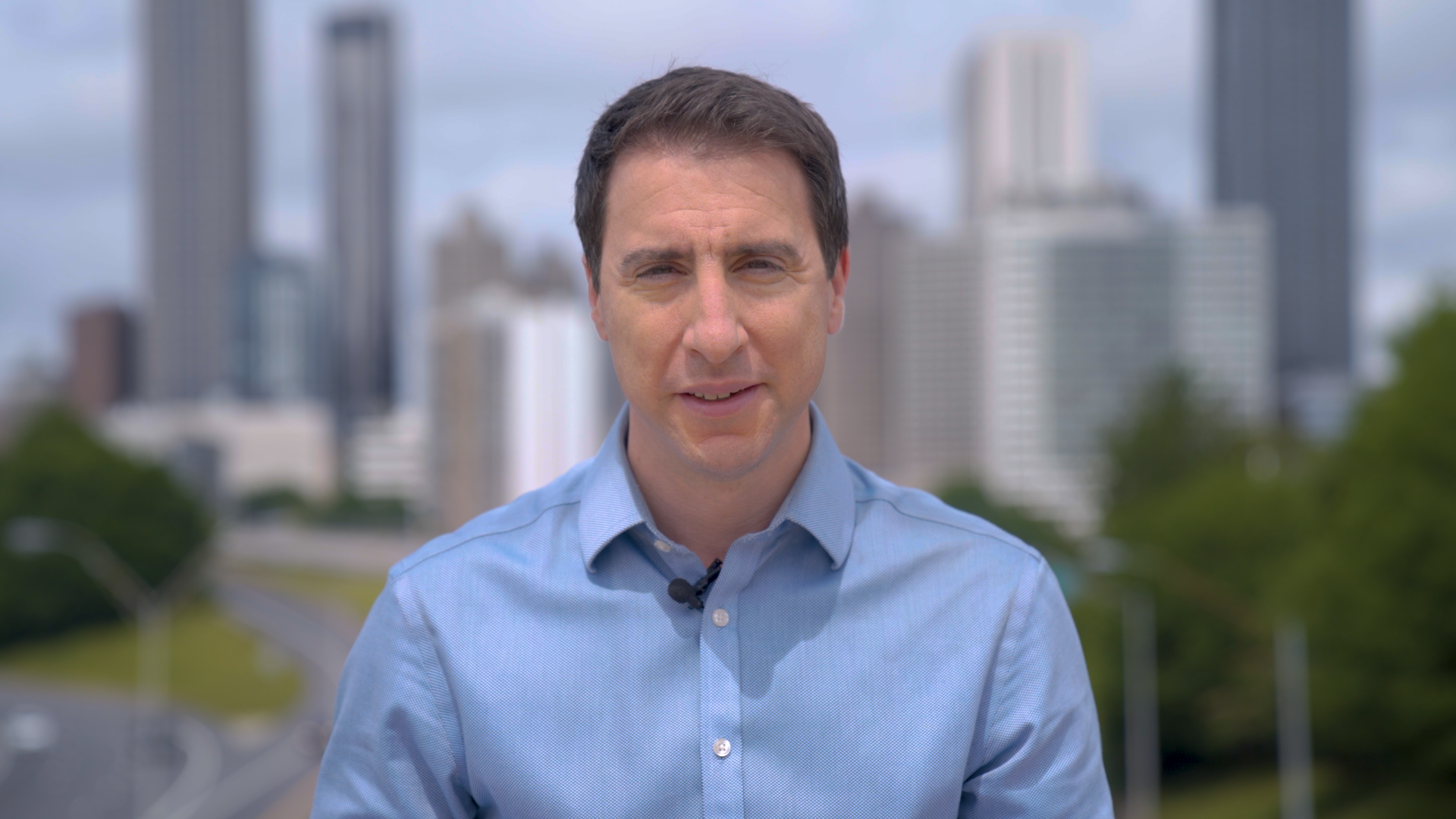EDITOR'S NOTE: This is part one of a four-part series on the aftermath of Hurricane Michael, one month later. (See a preview of part two, ''God wanted an angel' | Small Georgia town suffers Michael's largest loss')
DONALSONVILLE, Ga. -- Ask around south Georgia about which town Hurricane Michael hit hardest, and you’ll be sent to Donalsonville. It sits in the southwest corner of the state, a few miles east of the Florida border. Drive through it today, you’ll see tarps on roofs, limbs on lawns, and sometimes branches in houses.
But this story is about what’s less visible: the mental strain among its residents of living amidst tragedy for the past month.
“I can still hear the snap and the pop of the trees,” says Jeff Wilson. “My wife told me that she didn’t want a Christmas tree this year, because the smell of cedar and pine has traumatized her.”
Donalsonville’s population has hovered around 3,000 for the past half-century. Many have lived here for decades. One resident, Vernecca Smith, describes it as “an ordinary little country piece of town.”


But country towns 80 miles from the coast rarely receive 115-mile-an-hour winds. Michael left scars on a community forced to grapple with them.
Three weeks after the storm, Debra Kraft sat outside her ranch house in the middle of the morning, waiting for the mail, she says, “because my mailbox was destroyed.”
Kraft’s lawn remained littered with branches and a fallen tree.
“I read the weather report every single morning now,” she said. “I just read we’re supposed to get possible severe storms tomorrow. That terrifies me.”
Since Michael hit, Pastor Nate Lehman has hosted workers and gathered supplies for residents at his church, Friendship United Methodist.
“There’s gonna be a lot of children that, every time a rainstorm comes through the area, they’re gonna be thinking about the hurricane,” he said. “They’ll think about what they experienced, whether they were hiding in a laundry room or some closet. It’s gonna be a long-term effect on everybody’s mentality. You can only live so long in a disaster zone before it starts to affect your thinking.”
The fear among many is becoming forgotten.
“My contractor isn’t going to be able to get to me until January or February,” said Wilson. “So we’ve gotta go through the holidays with our home like this.”
“Right now I am on a fixed income,” Smith said, “and all I’m praying for from God is for someone to help me get the house put back.”
From her chair in the front lawn, Kraft added, “I know that there are places far, far worse than us that need attention also. But this is Georgia, and we need Georgians to pick up and come help.”
Through the recovery, they try to see symbols of strength. Kraft pointed to a nearby tulip tree that stayed upright. Pastor Lehman noted a sign perched on the grass along Donalsonville’s main drag. It’s made of pallets and says “HOPE.”


Most of all, they lean on each other, the same way they always have.
“It’s a small town,” Wilson said, “and you don’t always say, ‘I’m from Donalsonville.’ But I wear it with a badge of honor right now. It’s been tough, but we’re going to get through this.”



